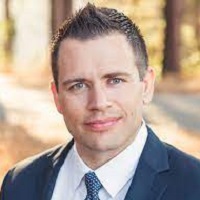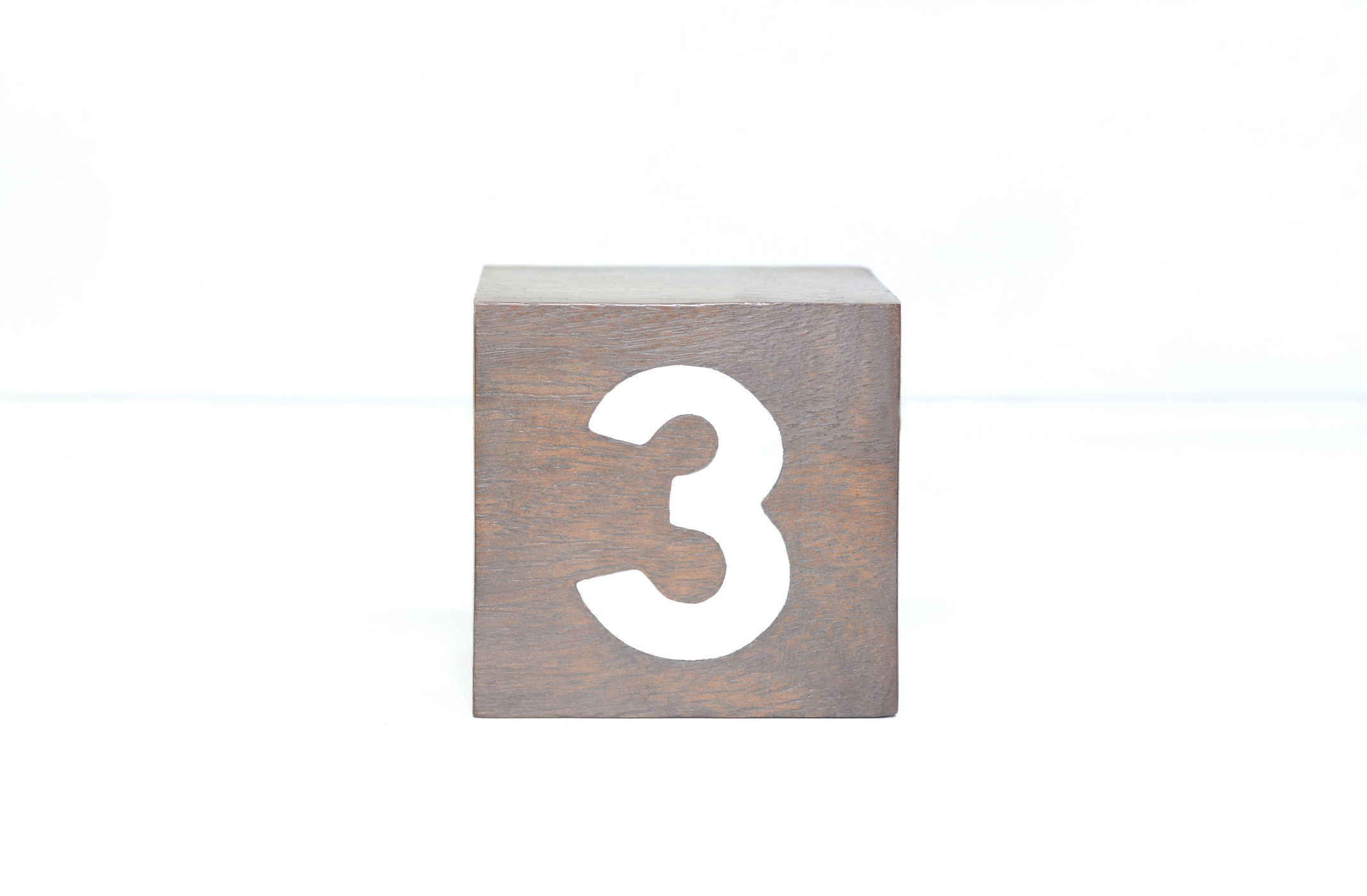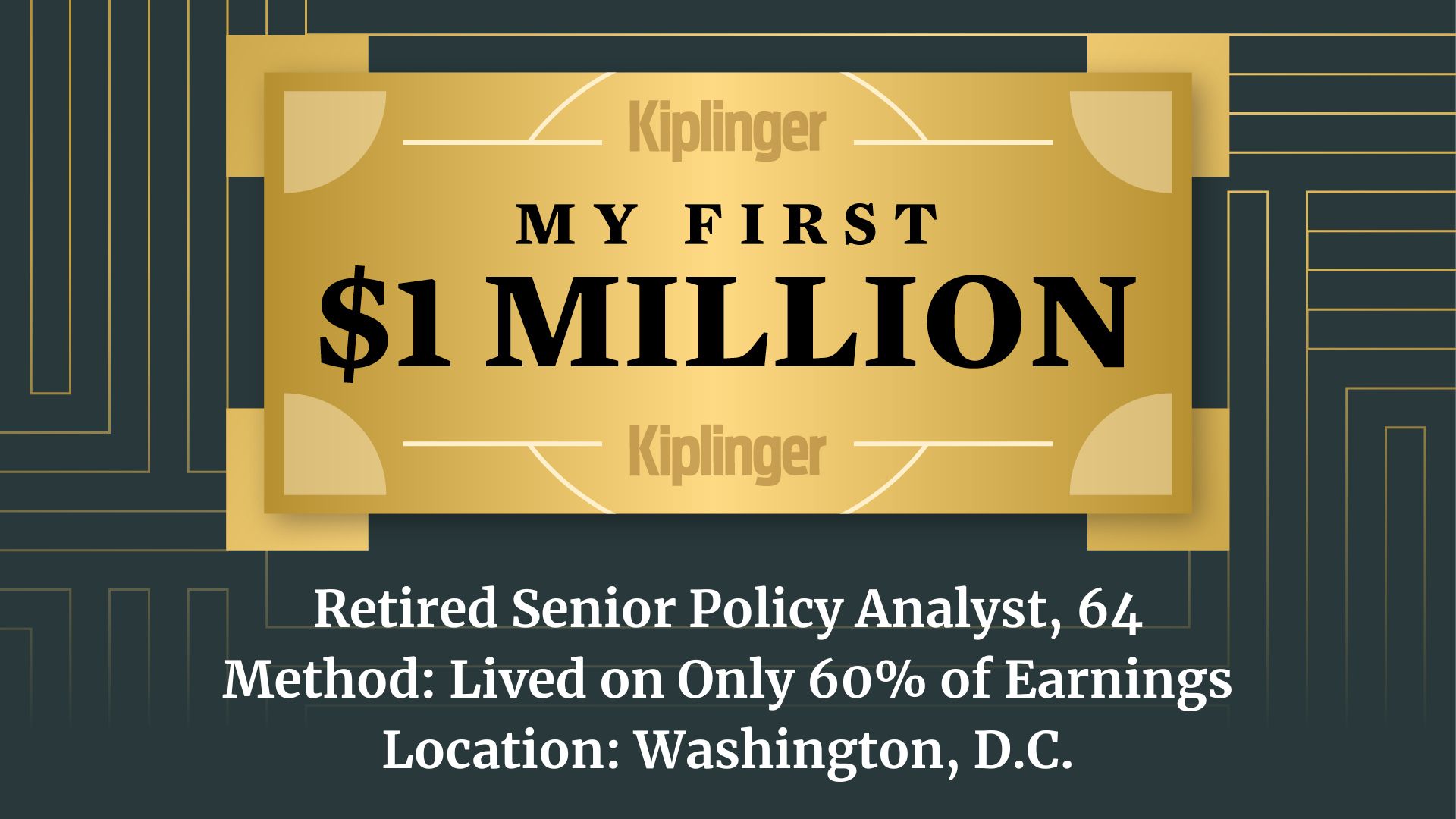I'm a Financial Adviser: This Is How You Can Save for Big Goals Even if You Feel Like You're Barely Getting By
Learning good financial habits — building an emergency fund, paying down debt, saving consistently — gives you flexibility, options and a path to security.


Profit and prosper with the best of Kiplinger's advice on investing, taxes, retirement, personal finance and much more. Delivered daily. Enter your email in the box and click Sign Me Up.
You are now subscribed
Your newsletter sign-up was successful
Want to add more newsletters?

Delivered daily
Kiplinger Today
Profit and prosper with the best of Kiplinger's advice on investing, taxes, retirement, personal finance and much more delivered daily. Smart money moves start here.

Sent five days a week
Kiplinger A Step Ahead
Get practical help to make better financial decisions in your everyday life, from spending to savings on top deals.

Delivered daily
Kiplinger Closing Bell
Get today's biggest financial and investing headlines delivered to your inbox every day the U.S. stock market is open.

Sent twice a week
Kiplinger Adviser Intel
Financial pros across the country share best practices and fresh tactics to preserve and grow your wealth.

Delivered weekly
Kiplinger Tax Tips
Trim your federal and state tax bills with practical tax-planning and tax-cutting strategies.

Sent twice a week
Kiplinger Retirement Tips
Your twice-a-week guide to planning and enjoying a financially secure and richly rewarding retirement

Sent bimonthly.
Kiplinger Adviser Angle
Insights for advisers, wealth managers and other financial professionals.

Sent twice a week
Kiplinger Investing Weekly
Your twice-a-week roundup of promising stocks, funds, companies and industries you should consider, ones you should avoid, and why.

Sent weekly for six weeks
Kiplinger Invest for Retirement
Your step-by-step six-part series on how to invest for retirement, from devising a successful strategy to exactly which investments to choose.
Unless your life's goal is to live off the grid away from societal pressure (which kind of sounds appealing, not going to lie), you must figure out how money and savings work.
Money runs the world. There's no way around it.
Big goals, such as starting a business, buying a home or traveling the world need funding, and you're the only one who cares enough about them to do that.
From just $107.88 $24.99 for Kiplinger Personal Finance
Become a smarter, better informed investor. Subscribe from just $107.88 $24.99, plus get up to 4 Special Issues

Sign up for Kiplinger’s Free Newsletters
Profit and prosper with the best of expert advice on investing, taxes, retirement, personal finance and more - straight to your e-mail.
Profit and prosper with the best of expert advice - straight to your e-mail.
The Kiplinger Building Wealth program handpicks financial advisers and business owners from around the world to share retirement, estate planning and tax strategies to preserve and grow your wealth. These experts, who never pay for inclusion on the site, include professional wealth managers, fiduciary financial planners, CPAs and lawyers. Most of them have certifications including CFP®, ChFC®, IAR, AIF®, CDFA® and more, and their stellar records can be checked through the SEC or FINRA.
How can you set money aside when you're juggling rent, groceries, gas and that random $87 vet bill for your cat (again)?
You learn and build better financial habits.
More than 80% of Americans have at least one savings account, according to a NerdWallet survey, and are actively setting money aside for the future (usually emergencies and vacations).
Given that nearly half of Americans say they live paycheck to paycheck, according to a Bank of America analysis, it shows you can still save, even when you're on a tight budget.
However, saving isn't about deprivation. I'll walk you through several practical ways to save for big goals without giving up the small joys that make life livable.
Why you should save even when it feels impossible
When you're living paycheck to paycheck, the urge to throw your hands up and say, "What's the point?" is real and valid.
But the cost of not saving is massive.
If you could go back in time and have a conversation with your younger self, the one thing you should convey would be the importance of having an emergency fund.
Things (such as your car or fridge) break down at the least convenient moment, and health scares pop up out of nowhere.
When you don't have any cushion, those moments often lead to credit cards, payday loans or panicked borrowing from family.
Emily Ruby, owner of Greenberg and Ruby Injury Attorneys, offers a word of caution: "I've seen how quickly someone's finances unravel in the case of an unexpected injury. What starts as a hospital bill can explode into months of lost wages, steep rehab costs, home modifications and often, huge stress on family budgets.
"Without proactive financial planning, some families end up depleting savings and delaying or forgoing essential treatments, permanently altering their financial and physical futures."
Although most Americans have a savings account, according to a recent Bankrate survey, nearly 60% wouldn't be able to cover a $1,000 emergency expense from savings.
The lack of a financial safety net takes a toll on finances, mental health, relationships and your sense of control.
Gary Heming, owner and finance director at ABC Finance, advises, "Saving is more than just preparing for emergencies — it's about giving yourself choice and control. Even small amounts set aside regularly can prevent you from relying on debt and give you the flexibility to take advantage of opportunities."
Money in the bank gives you options, such as:
- Walking away from a toxic job
- Taking a sabbatical to avoid burnout
- Making a business investment
- Avoiding unnecessary debt
This kind of flexibility can be life-changing.
How to make saving easier
With savings, it's not the amount that matters the most, but the consistency.
For instance, if you save $5 every month from the age of 10, you will have saved $1,200 by the time you're 30.
If your parents understand the power of compound interest, your $5 per month might become a diversified portfolio that builds wealth and teaches lifelong money discipline.
Sadly, money talk is taboo in many families, so chances are you'd rather get candy with your $5 than learn how to save and invest.
The good news? It's never too late to start learning and building better financial habits.
Here are a few methods, tips and expert recommendations to put you on the right path:
Don't budget what's left: Save first
Ever hear about the "pay yourself first" approach? In this case, it's about prioritizing savings above all other expenses.
The key is to use automation and make saving a behind-the-scenes process. Set up a small automatic transfer (up to $50) from your checking account to savings the day your paycheck hits. Your savings account will grow without action on your part.
You can also use apps such as Qapital or Chime to round up your purchases to the nearest dollar and stash the spare change. Treat any surprise money (refunds, rebates, birthday cash) as a boost to your savings, not extras for spending.
Prioritize high-impact financial moves
When money's tight, the right financial moves can make the biggest difference.
Start with the basics:
If you're carrying high-interest debt, tackle that first. Direct any extra funds toward paying off the most expensive debt while making minimum payments on the rest. This one move alone can open your future.
Jason Pack, chief revenue officer at Freedom Debt Relief, puts it this way: "Debt is a barrier to opportunity. Every dollar you pay in interest is a dollar that can't grow toward your goals."
Once debt is under control, focus on building a starter emergency fund. Even $500 can keep a bad week from turning into a financial crisis.
Look for other opportunities to consolidate your savings. If your employer offers a 401(k) match, grab it.
If you have a high-deductible health plan, open a health savings account (HSA). HSAs come with a triple tax advantage: Your contributions are pretax, the money grows tax-free, and withdrawals for qualified medical expenses aren't taxed.
Looking for expert tips to grow and preserve your wealth? Sign up for Building Wealth, our free, twice-weekly newsletter.
Don't worry about investing in crypto or flipping thrift finds, for now. Nail the fundamentals. You'll be glad you did.
Make it emotional. Money is never just about numbers. It's tied to your stress, your dreams, your identity, even your self-worth. If you want to build a savings habit that sticks, don't make it all about spreadsheets and sacrifice. Make it personal. Make it emotional.
Tie savings to a goal that feels good: a stress-free vacation, a home office, that amazing concert you've been putting off.
Adam Young, CEO and founder at Event Tickets Center, advises, "People who can commit to a greater purpose (even if it's just seeing their favorite band live) find a way to make it happen. In my experience, these people are the ones who have what it takes to go the distance and follow their goals."
Find your community. In many parts of the world, we're surrounded by a culture that glorifies spending. This can feel downright lonely when you're trying to grow your savings.
That's why finding a community of like-minded people — folks who care about their financial future — can make a huge difference.
When you're surrounded by others who are budgeting intentionally, paying off debt or saving for big goals, it's easier to stay motivated, share ideas and feel normal for not spending every cent you earn.
If you haven't yet found your community, here are a few ideas to try:
- r/personalfinance on Reddit. People from all walks of life share real numbers, real struggles and real advice about everything from budgeting and paying off debt to saving for retirement and navigating unexpected expenses.
- Private social media groups. Communities such as Clever Girl Finance Community or Millennial Money can offer relevant and valuable advice.
- Personal finance podcasts and blogs. Try listening to The Dave Ramsey Show or reading our advice on Kiplinger for a more well-rounded view on money, savings and investments.
You should also look for real-life friends who are serious about their financial goals. Being in contact with people on the same journey can provide accountability, encouragement and even some fun competition.
Bottom line
Saving might feel tough when every dollar counts, but every small step forward is progress. You need consistency and purpose to build financial security, and it helps to find a supportive community.
Be patient, keep your goals in sight, and celebrate your wins, no matter how small. With determination and smart choices, you'll learn how to save money and invest in a better future for yourself.
Related Content
- Nine Ways to Make Paying Off Debt Less Intimidating
- Lost Your Way Financially? How to Get Back on Track
- Extra Cash? Should You Pay Off Debt or Invest?
- Saving for Your Emergency Fund: As Easy as 1-3-6
- Financial Pros Provide a Beginner's Guide to Building Wealth in 10 Years
Profit and prosper with the best of Kiplinger's advice on investing, taxes, retirement, personal finance and much more. Delivered daily. Enter your email in the box and click Sign Me Up.

Anthony Martin is CEO and Founder of Choice Mutual. Nationally licensed life insurance agent with 10+ years of experience. Official Member at Forbes Finance Council. Obsessed with finances, building tech and collaborating with other successful entrepreneurs.
-
 I Thought My Retirement Was Set — Until I Answered These 3 Questions
I Thought My Retirement Was Set — Until I Answered These 3 QuestionsI'm a retirement writer. Three deceptively simple questions helped me focus my retirement and life priorities.
-
 How to Use Home Equity to Help With Your Long-Term Goals
How to Use Home Equity to Help With Your Long-Term GoalsHomeowners are increasingly using their home equity, through products like HELOCs and home equity loans, as a financial resource for managing debt, funding renovations and more.
-
 How to Find Free Money for Graduate School as Loans Tighten
How to Find Free Money for Graduate School as Loans TightenStarting July 1, federal borrowing will be capped for new graduate students, making scholarships and other forms of "free money" vital. Here's what to know.
-
 How You Can Use the Financial Resource Built Into Your Home to Help With Your Long-Term Goals
How You Can Use the Financial Resource Built Into Your Home to Help With Your Long-Term GoalsHomeowners are increasingly using their home equity, through products like HELOCs and home equity loans, as a financial resource for managing debt, funding renovations and more.
-
 How to Find Free Money for Graduate School as Federal Loans Tighten in 2026
How to Find Free Money for Graduate School as Federal Loans Tighten in 2026Starting July 1, federal borrowing will be capped for new graduate students, making scholarships and other forms of "free money" vital. Here's what to know.
-
 5 Tips To Get Your Kids Investing as Soon as Possible
5 Tips To Get Your Kids Investing as Soon as PossibleTeaching your kids to invest early will help them build a solid financial future. Here are five ways to get them started.
-
 Aging in Place Can Be Bad for Your Health: This Financial Pro's Alternative Is a No-Brainer
Aging in Place Can Be Bad for Your Health: This Financial Pro's Alternative Is a No-BrainerWhy age alone in financial hardship when you can enjoy companionship — and share the costs of housing, groceries and health care — with a small community of friends?
-
 Want to Buy a Home With a Friend? Here's How to Prevent Legal Headaches
Want to Buy a Home With a Friend? Here's How to Prevent Legal HeadachesWith rising home prices leading more people to co-buy homes with friends, it's essential to have a co-tenancy agreement that clearly defines the deal.
-
 When It Comes to Retirement Planning, Be More Spock Than Scotty: It's Logical, Captain
When It Comes to Retirement Planning, Be More Spock Than Scotty: It's Logical, CaptainIf you're worried about your retirement, address the concerns in a logical sequence, talk honestly with your team and prepare to go boldly into the future.
-
 A 5-Step Guide to Getting AI to Give You Actionable Insight Rather Than Polished Nonsense
A 5-Step Guide to Getting AI to Give You Actionable Insight Rather Than Polished NonsenseAI can be a powerful specialist, but it can sound smarter than it is when it comes to understanding real-world stakes. That means you have to be the strategist.
-
 My First $1 Million: Retired Senior Policy Analyst, 64, Washington, D.C.
My First $1 Million: Retired Senior Policy Analyst, 64, Washington, D.C.Ever wonder how someone who's made a million dollars or more did it? Kiplinger's My First $1 Million series uncovers the answers.